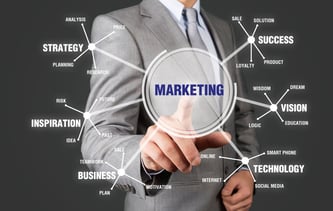Some of today’s biggest brands utilize persuasive digital marketing tactics in order to appeal to their  desired audience and sell more of their products or services.
desired audience and sell more of their products or services.
We have all fallen for these schemes more times than we would like to admit.
However, if you are a business owner or advertiser, you can use these strategies to your advantage.
Learn how to sell more products or services to your desired customer with these persuasion techniques.
Persuasion can be one of the most effective marketing tactics, but it must be done correctly.
Persuasive digital marketing efforts can never be forceful.
Advertisements need to convey a company’s message naturally, while simultaneously allowing customers to believe they are embracing your product or services on their own.
This will hopefully ignite some passion and loyalty for your brand.
Below are five of the most persuasive digital marketing tactics that all marketers and advertising businesses should use,
1. StoryTelling:
Since the beginning of time storytelling has been an important part of human interaction.
It makes people feel connected to one another and will help potential customers develop a connection to your brand.
Telling a story is the ultimate persuasive marketing technique.
You can use storytelling to push a product, create a valuable connection, and earn customer loyalty.
However, when utilizing a story as your marketing method, be sure to keep these three tips in mind;
- humanize the conversation
- create an emotional connection
- offer value
Always consistently mirror the voice of your brand, while keeping simplicity in mind.
Some of the best stories can say so much with so little.
2. Trigger Words in Content:
Trigger words are used to grab someone's attention quickly.
A trigger word can lead to an actionable response, or at the very least, engage someone enough to learn about what you have to offer.
Some of the most efficient trigger words are, new, best, and free.
These should be used purposefully throughout your content because it triggers the brain’s reward center.
3. Build Authority:
Just as trigger words are used immediately, statements that build authority should be as well.
For example, any form of recognition, like awards, mentions in articles, and content published by any third-party resources.
Brand authority naturally persuades customers, providing them with a secure feeling about your product or service.
Remember, your goal is to cater to human emotions, so highlight any recognition that builds authority across all channels of your online presence.
4. Offer Social Proof:
An equally important strategy to building authority is offering social proof to your customers, or potential customers.
Instead of telling a potential customer what you do, and how well you do it, show them!
The easiest and most honest form of persuasion comes from reviews.
If your customers share the success you have brought them, more clients will most likely come your way looking for help and wanting to also achieve that same level of success.
5. Talk Benefits:
Once you have established a connection and proven your knowledge and authority, it is time to highlight the benefits of your product or service.
Explain how these benefits will help customers solve and avoid their problems.
Keep in mind that search engine algorithms hate irrelevant, keyword stuffed, thin content.
So be informative and write as much helpful and relevant content as you can.
![]()
If you employ these tactics, they can gain you a loyal customer base.
Remember to never be too pushy and naturally engage your prospective customers.
Create loyalty to your brand as a whole.
A persuasive digital marketing campaign that incorporates these tactics will surely garner more attention and loyalty over a traditional "in-your-face" campaign.
Also, make sure you share you message properly.
Whether you want to level up your outreach, remove dead links, master influence marketing, or analyze your competitors, it's all here.
If you would like personal help from marketing experts, contact Donovan Digital Solutions today for a Free Digital Advertising Consultation.





